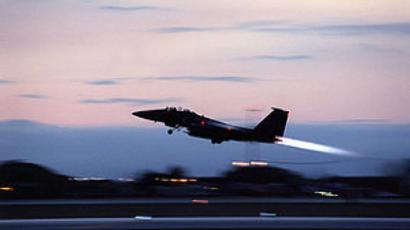“Russia interested in special relations with NATO” – expert
NATO foreign ministers are meeting in the Estonian capital, Tallinn, over the mission in Afghanistan and the future of the alliance. The ministers will also talk missile shield in Europe and co-operation with Russia.
NATO head Anders Fogh Rasmussen advocated that the alliance should boost training programs in Afghanistan to provide for a smooth transition of power in the country. To do so, it is necessary to increase the number of military instructors who will train the national army and special services.
The NATO ministers are also due to discuss the future of alliance and its new strategy, which is to be adopted during NATO’s Lisbon summit at the end of the year. The sides will also discuss the anti-missile shield in Europe and Russia's role in negotiations, which is another issue high on the agenda.According to Aleksandr Nikitin from the Moscow State University of International Relations, Russia is interested in special relations with the alliance.
“Russia does not speak now about the full membership in NATO, but Russia wants a kind of special relations with NATO which would be almost as good as membership when it comes to the political security decision making,” he told RT.
“Russia is not interested in joining technical efforts on all possible directions with NATO, but Russia is really interested to participate in decision making on large antiterrorist operations, on the issues connected to nuclear deterrence and missile defense as well as in general structure of the security efforts of NATO,” Nikitin added.
Vladimir Kozin, a political analyst, believes a lot of disagreements between Russia and US still remain.
“One of them is secrecy – could we overcome secrecy between us in building this joint BMD asset? Second – compatibility of early warning radars of each side,” he said, adding “Some others – strategic doctrines, especially nuclear strategies – still different; militarization or non-militarization of space – still not resolved, not at inch; conventional forces in Europe treaty should be reinvigorated, revitalized, because it’s deadlocked nowadays and …there is a huge disparity in conventional forces in favor of NATO – three to one (one is Russia). So, we have to tackle this issue as well.”
Andrey Baykov, a political analyst at the Moscow State Institute of International Relations, says there is time for NATO to decide on a new strategic concept.
“Actually, the new concept will not be very much different from the one we had before, but the fact is that this new concept will retain continuity and will be in the tradition of the previous concept, but at the same time there will be some nuances that would stress new priorities of NATO,” he said.
Baykov also added that relations between Russia and NATO will be spelled out in this concept, as the two “need co-operation to battle new threats”.












